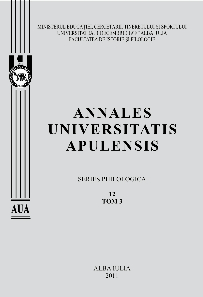Cultural Differences and the Idea of “Otherness” in Shakespeare
Cultural Differences and the Idea of “Otherness” in Shakespeare
Author(s): Alina PopaSubject(s): Literary Texts
Published by: Universitatea »1 Decembrie 1918« Alba Iulia
Keywords: race; otherness; Shakespeare; the Other
Summary/Abstract: The term race was used in a number of different ways in Shakespeare’s period. It could refer frequently to relations of kinship or more generally to genealogy and lineage. Elsewhere, it might refer to individual worth or behaviour, status of birth (and thus, rights of inheritance), religious confession, geographical residence as well as, on occasion, skin colour. Frequently, populations of distant lands were perceived as either being savage or as more primitive, child-like versions of Europeans. Voyages of discovery and conquest contributed to the Englishmen’s encounter with the Other, be this the ‘turban’d Turk’, the Moor, the Jew, the Venetian, the Bohemian, the member of the numerous Germanic populations in Western Europe, or the Pannonians. This article aims to take a closer look at the cultural differences in Shakespeare and to analyze the Englishmen’s growing awareness of the unavoidable Otherness.
Journal: Annales Universitatis Apulensis. Series Philologica
- Issue Year: 12/2011
- Issue No: 2
- Page Range: 97-108
- Page Count: 11
- Language: English

